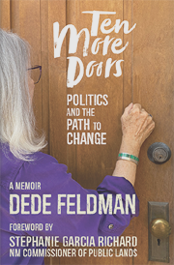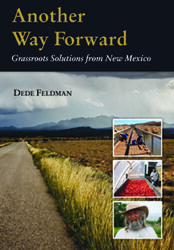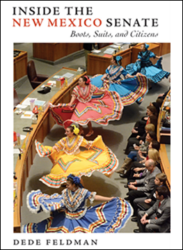Women Health Summit
Introductory remarks by Senator Dede Feldman
June 23, 2005
Good morning and thank you Mary Molina mescal and commission on the status of women for holding this summit on women’s health and whether to set up an office of women’s health. I’ve really been looking forward to this day…. not so much because of the opportunity an office of women’s health might present to coordinate efforts, explore health care disparities, and do further research on women’s issues, but because of a story that I would like to share with you…
It is a story I heard last week on a radio program called “The Bioneers.” this program offen features innovative social strategies for restoring the earth, promoting health, social and economic justice and most of all rejuvenating our spirits and our connections to each other.
The speaker was an Ethopian women, bo-ga-letch gebre who was the first girl in her village to be educated beyond the fourth grade…. way beyond, actually, going to hebrew university in Jerusalem, obtaining a fulbright scholarship at the University of Massachusetts, and now on the science faculty at Addis Ababa University. But her beginnings were humbler than any of us can imagine, and the psychological and physical obstacles immense. it was her own personal horror—that of female genital mutilation—that drove her ambition to dedicate her life to the empowerment, education and public health of Ethopian women. female genital excision is not an individual horror—but a tradition that affects hundred of thousands of girls in Africa and beyond, where women are still objects of servitude first for their families and then for their husband’s families.
What Bogaletch articulated so movingly in that program was her realization that what is good for women is good for the entire community, and what is bad for women is bad for the entire fabric of society. Because women—especially in Africa and developing countries are mothers, care givers, health care consumers, meal providers and decision makers. they are the connectors—they are fabric of society.
So what this solitary woman set out to do was to educate and an empower women. In 1997 she founded the Kembatta Women’s Self-help Center-Ethopia, 260 miles south of the capital, and later established the KMG Mother Child Heath Center.
Here’s what she had to say: ”I began to dream of integrating health, livelihood and environment for women. for once, we will see women as whole people…. what I discovered in our work, she continued, is not changing the whole society at once, but to change one person at a time, and it works.”
In the legislataure, over the years we have been taking women’s health issues one step at a time….with prevention measures that have been championed by women legislators… Often over the opposition of men, insurance companies and the bureaucracy….in 1990 we required insurance companies to cover mammograms, in 1992 we extended that to pap smears, and in 1997 we put an end to drive by mastectomies by requiring insurance companies to cover hospital stays of at least 48 hours following this type of surgery. Finally in 2001 we required insurance companies to cover prescription contraceptiuve drugs and devices.
Elsewhere in state government, we now have a huge number of agencies serving women and girls. in the health department we have the WIC program, families first, and healthy families first which provides home visitng to young mothers and their babies. In the human services department, we now have a medicaid waiver program that provides treatment—and not just diagnosis— for breast and cervical cancer for poor women with children. In the education area, we have pregnancy prevention programs for teens through the grads program, and in CYFD we have domestic violence programs throughout the state.
There’s a lot happening. It’s not always coordinated, it’s not always as well funded as we’d like to see… but it’s happening. my hope for you today, as you consider what more we have to do, is that you keep in mind Bogaletch and what she overcame…. her courage in training other women as leaders, as health care consumers, as decision makers and providers…. and the realization that it’s all connected, it’s all part of weaving a fabric of healthy communities with empowered and active women at the center.
Thank you and good luck.





